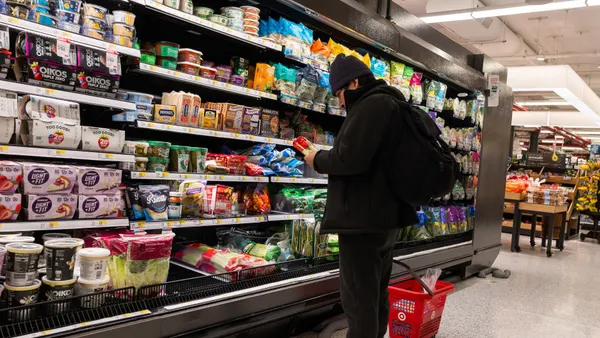Dive Brief:
- Ethnic e-grocer Weee and freight company Weee Logistics are facing a lawsuit from two delivery drivers who are accusing the companies of multiple violations under the California Labor Code, including making unlawful deductions from drivers’ tips, failing to provide drivers with adequate meal periods and misclassifying over 100 drivers as independent contractors.
- The lawsuit was filed last week in the Superior Court of California in Alameda County by Sanford Heisler Sharp on behalf of Yi “Sunny” Song and Xiangyang “James” Ji. It includes both claims under California’s Private Attorneys General Act and 11 class action allegations.
- The lawsuit alleges that the e-grocer and freight company “have engaged in a longstanding, systematic practice of Labor Code violations against its delivery drivers.”
Dive Insight:
The lawsuit alleges that Weee deprived its drivers of pay and regular work breaks and put them at risk of harm, laying out a series of claims and then seeking redress for the employees and penalties for the state.
The plaintiffs both started working as delivery drivers for Weee in spring 2021. Ji was fired a few months later “in retaliation for reporting and protesting the company’s Labor Code violations,” the law firm Sanford Heisler Sharp noted in a press release.
Ji and Song claim they both noticed “substantial irregularities” with their tip-related compensation and that they raised these concerns to Weee management, per the lawsuit. After a customer sent a complaint about the transparency of tip payments, a Weee human resources manager chastised and threatened drivers for talking about their tips, the lawsuit claims.
The lawsuit also alleges that Weee willfully misclassified a large portion of its drivers as independent contractors and that the company treats both W-2 and 1099 drivers the same. Other claims in the lawsuit include:
- Failing to provide duty-free meal periods to delivery drivers
- Requiring drivers to work through unpaid meal breaks
- Failing to keep accurate payroll records
- Failing to pay drivers all wages due upon separation
- Imposing an illegal confidentiality requirement as a condition of employment
- Failing to provide necessary safety equipment and COVID-19 supplies
- Retaliating against employees
Under the alleged workplace risks, the complaint claims Weee’s usage of dry ice in its delivery vehicles could have harmed its drivers and that the company did not provide drivers with sufficient eye and hand protection or adequate training for handling dry ice. The suit also claims the company did not provide eye protection to drivers who routinely handle highly reflective packaging under direct sunlight.
Qiaojing Ella Zheng, managing partner of Sanford’s Palo Alto and San Francisco offices, said that the lawsuit aims to “break the silence” around Weee’s labor practices.
“To perpetuate these violations, Weee! implements policies that prevent employees from discussing their wages and working conditions with each other or outsiders; it punishes them if they do so; and retaliates against them if they protest the Labor Code infractions they regularly endure,” Zheng said in the statement.
The lawsuit claims that Weee used retaliatory conduct to suppress complaints by employees and discourage workers from demanding lawful treatment.
The plaintiffs are requesting a jury trial. The lawsuit was filed on behalf of all current and former similarly aggrieved hourly workers, as well as on behalf of the State of California and its Labor and Workforce Development Agency. The suit is seeking civil penalties for the Labor Code violations, PAGA penalties, lost wages and other damages, and legal costs, such as attorney fees. PAGA allows aggrieved employees to file lawsuits to seek civil penalties on behalf of themselves, other workers and the State of California for Labor Code violations.
The class action part of the complaint encompasses delivery drivers employed by Weee in California from March 4, 2018, through the date of final judgment.
A Weee spokesperson declined to comment.
The lawsuit adds to Weee’s recent woes. The e-grocer announced in February that customer data was stolen in a data breach.
Sam Silverstein contributed reporting.















